Cybersecurity Conference (2012) Speaker Profiles
Keynote Speakers
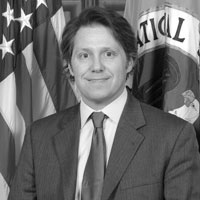
Neal Ziring
Technical Director, Information Assurance Directorate
National Security Agency
Neal Ziring is the technical director for the information assurance directorate at the National Security Agency (NSA), where he tracks technical activities, promotes technical health of staff, and acts as a liaison to industry, intelligence, academic, and government partners. He also guides the directorate's academic outreach program, acting as a technical liaison to universities that participate in the National Centers for Academic Excellence - Research program. His expertise includes router security, IPv6, VM-based secure systems, cloud computing, cross-domain information exchange, and mobile code security. He holds Cisco Certified Security Professional certificates. Ziring joined NSA in 1988, working on software tools and cryptosystem simulation, and later transitioned to information assurance evaluations, where he has held positions of increasing responsibility for the past two decades. Prior to joining NSA, he served as a member of the technical staff at AT&T Bell Laboratories.

Marisa S. Viveros
Vice President, Cyber Security Innovation
IBM
Marisa Viveros leads IBM's global Cyber Security Innovation initiative. She is responsible for creating academic and research programs that foster stronger collaborations among academic institutions, government organizations, and IBM toward building cyber and information security talent to address the skills shortage. Viveros began her career at IBM as a member of the Thomas J Watson Research Center. While at IBM Research, she held different technical and management positions in the areas of pervasive computing, data management, and data mining. Upon joining IBM Global Services, she led strategy and innovation for the Wireless Emerging Business Opportunity group and led the creation of Unified Communications and Collaboration Service business unit. Most recently, she led IBM Security Services, an organization responsible for creating and delivering IT and physical security services for business and government organizations, who are in need of IT Risk Management and Compliance. Viveros received an IBM Outstanding Innovation Award for her pioneer work in mobile commerce, and an Outstanding Technical Achievement Award for her work in parallel systems. She has coauthored papers and patents, and has participated in conferences as a program committee member, keynote speaker, session chairman, and panelist. Viveros holds an M.S. degree in computer science from California State University and a B.S. degree in electrical engineering from Universidad de Concepción, Chile. She is a member of the Association for Computing Machinery and ACM SIGSAC.
Guest Speakers
Michael A. Davis
CEO, Savid Technologies
Over the years, Michael Davis has earned a reputation as one of the nation's leading authorities on IT security. The list of companies that rely on his council includes AT&T, GroupOn, the U.S. Department of Defense, and Discover Financial. In 2005, Davis founded Savid Technologies and, by 2010, it was no. 611 on Inc. Magazine’s list of 5,000 fastest-growing companies in America. Davis was a contributing author to Hacking Exposed, the best-selling security book in the world, and has recently penned Hacking Exposed: Malware and Rootkits. He has worked with McAfee, Inc., a leader in antivirus protection and vulnerability management, and held the position of senior manager of global threats, leading a team of researchers investigating confidential and cutting-edge security research. His advice can be found in InformationWeek, where he is a senior contributing author, and in Information Week Analytics. Davis’s insights can also be found in the Wall Street Journal. His particular expertise extends to topics such as the relationship between security and compliance, application security, penetration testing/ethical hacking, risk assessment, policy development, and software security development life cycles. Much of his time is spent lecturing, and conferences and conventions know him well, including Blackhat, InfoSecWorld, FINSEC and CanSecWest. He is also an active developer in the Open Source community.

Rajesh Goel
Chief Technical Officer, Co-Founder
Brainlink
Raj Goel, CISSP, is an IT and information security expert with more than 20 years of experience in developing security solutions for the banking, financial services, healthcare, and pharmaceutical industries. A well-known authority on regulations and compliance issues, Raj has presented at information security conferences across the United States and Canada. He is a regular speaker on PCI-DSS, HIPAA, Sarbanes-Oxley, and other technology and business issues, and he has addressed a diverse audience of technologists, policy-makers, front-line workers, and corporate executives. Goel works with small-to-medium businesses (SMBs) of 10-200 employees to help grow their revenues and profitability. He also works with hospitals and regional medical centers across the northeastern United States (including New York, Vermont, New Hampshire, Maine, and Pennsylvania), helping them meet HIPAA compliance requirements and utilizing health information systems (HIS) effectively. He received his B.S. in computer science from New York Institute of Technology.

Steven Greenspan, Ph.D.
Senior Vice President
CA Technologies
As part of CA Labs, Steven Greenspan, Ph.D., is working with university researchers to examine fundamental issues in computer-human interaction that can be leveraged into new business opportunities and competitive advantages for CA Technologies. His current research focus is on cognitive overload, collaboration, usable visualization and knowledge management within and across organizations. In addition to his research responsibilities, Dr. Greenspan was elected president of the CA Council for Technical Excellence in 2009 and 2010. In 2011, he led business development efforts for the CA Innovation Center. He is currently chair of the Industrial Advisory Board of the Center for Dynamic Data Analytics (at Rutgers and Stony Brook Universities) and is co-inventor on 17 U.S.-issued patents. After completing a Ph.D. in cognitive psychology in 1982 at SUNY Buffalo, Greenspan conducted postdoctoral research in language comprehension, usability, and attention at UC/SanDiego and Indiana University. In 1986, he joined AT&T Bell Laboratories, where he explored user and market responses to cutting-edge telecommunication and Internet services, and examined new methods for brainstorming and understanding the mind of the consumer. In addition, he led the design team of a domain specific language for telecommunication services and helped develop the architectureof a Service Creation Environment for telecommunications. In 1998, he moved to AT&T Labs - Research, where he worked with AT&T's Opportunity Discovery Department to understand and predict social shifts in communication patterns, and to develop strategic responses to these shifts. Greenspan co-founded Omenti Research LLC in 2002, where he consulted on user interaction design, organizational change, and communication technologies In 2007 he joined CA Technologies.

Corby Hovis, Ph.D.
Program Director
National Science Foundation
Corby Hovis, Ph.D., oversees the NSF’s Research Experiences for Undergraduates (REU) program. He also co-manages several grant programs in NSF's Directorate for Education and Human Resources, including the CyberCorps: Scholarship for Service (SFS) program, which provides scholarships and supports other activities to build strong educational programs in cybersecurity at colleges and universities. Hovis has also led the efforts within NSF's Advanced Technological Education (ATE) program to grow cybersecurity courses and curricula at community colleges around the nation.
Before coming to NSF in 1997, Hovis served on the faculty of Valparaiso University and, at the same time, as science editor at Encyclopædia Britannica in Chicago. He earned his graduate degrees (Ph.D., M.S., M.A.) from Cornell University and his undergraduate degree from Wake Forest University.
From September 2009 through August 2010, Hovis was an American Council on Education (ACE) Fellow in the Office of the President at the Ohio State University.
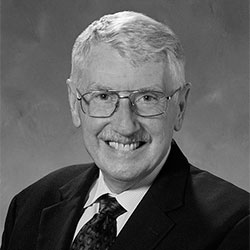
John F. Kimmins
Executive Director/Fellow
Applied Communication Sciences
John F. Kimmins is the executive director of a global cyber security practice in Applied Communication Sciences that specializes in developing security solutions for multimedia networks and services and the evolution toward next-generation networks. He works with governments, global service providers, international suppliers, utilities, financial services organizations, and enterprises to identify vulnerabilities and implement tactical and strategic risk-management approaches. He has pioneered security risk assessment methodologies for Smart Grid, Supply Chain Integrity, broadband networking, 3G/4G mobile technology, and IPTV. Kimmins also has published on the vulnerabilities of different aspects of the global telecommunications network, and he has participated in standards and industry working groups to establish industry best practices. He was awarded the prestigious Fellow for contributions to the security of the public telecommunications infrastructure. Kimmins has bachelor and master's degrees in operations research and systems engineering. He is also a Certified Information System Security Professional (CISSP).
Lena Smart
Chief Security Officer
New York Power Authority
Lena Smart has worked in information technology for over 25 years in various countries including Japan, Singapore, England, and the United States. She has worked in the utility industry for the past 13 years. She holds CISSP, CISM, CRISC, and CCISO designations.
Daniel Stein
Lead Program Analyst for Formal Cyber Security Education
U.S. Department of Homeland Security, National Cyber Security Division
Daniel Stein is the lead program analyst for formal cyber security education in the U.S. Department of Homeland Security (DHS), National Cyber Security Division. His project portfolio includes co-sponsorship of the CyberCorps: Scholarship for Service Program with the National Science Foundation; strategic partnership with the National Security Agency on National Centers of Academic Excellence programs; and leadership of the Integrated Cyber Security Education Communities project. He also represents the DHS in the National Initiative for Cyber Security Education Component 2: Formal Cyber Security Education. Stein has master's degrees from the University of Texas at Austin and a bachelor's degree from the University of Rochester.
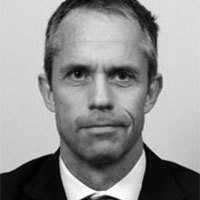
Wil M. Van Gemert
Cyber Security Director
Dutch Ministry of Security and Justice
As the Cyber Security Director for the Dutch Ministry of Security and Justice, Wil Van Gemert is responsible for the National Cyber Security Centre (NCSC) that became operational on Jan. 1, 2012. The NCSC cooperates in enhancing the defensibility of the Dutch society in the digital domain. The NCSC falls under the responsibility of the National Coordinator for Counterterrorism and Security [Nationaal Coördinator Terrorismebestrijding en Veiligheid] (NCTV) of the Ministry of Security and Justice, but its foundations are in public-private cooperation. Van Gemert was a member of the Dutch National Intelligence Service and was appointed as Director of National Security at the General Intelligence and Security Service, which focuses on the combat of terrorism, violent and politically motivated activism, anti-integration tendencies, and the so-called CT Info box. Prior to that position, Van Gemert was a member of the KLPD's management team as Director of Criminal Investigation and supervised a staff of about 1,500 people. He also has held various positions in international organizations and cooperative groups such as Interpol and Europol.
NYIT Faculty Speakers
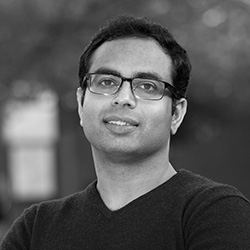
Kiran Balagani, Ph.D.
Assistant Professor, Computer Science
Prior to joining NYIT, Kiran Balagani, Ph.D., was a research assistant professor at the Center for Secure Cyberspace at Louisiana Tech University. His research interests are in developing algorithms for detecting and mitigating cyber-behavioral anomalies (e.g., unauthorized user-access behaviors) and network-centric anomalies (e.g., network attacks). Dr. Balagani's research is funded by DARPA and previously, by the Air Force Research Laboratory. His work has appeared in prestigious journals including the IEEE Transactions on Pattern Analysis and Machine Intelligence, IEEE Transactions on Knowledge and Data Engineering, IEEE Transactions on Systems, Man, and Cybernetics, IEEE Computer, and Pattern Recognition Letters. Additionally, Balagani holds three U.S. patents in network-centric attack detection. He holds a Ph.D. and two M.S. degrees from Louisiana Tech University, and a B.E. degree from Bangalore University.

Xiaohui Cui, Ph.D.
Assistant Professor, Computer Science
New York Institute of Technology
Prior to coming to NYIT, Dr. Xiaohui Cui served as a staff scientist in the Oak Ridge National Laboratory of the Department of Energy, and his research interests include swarm intelligence, GPU computing, agent-based modeling and simulation, cyber security, GIS and transportation, emergent behavior, complex system, high-performance computing, social computing, and information retrieval. Dr. Cui's research projects have been supported by grants from the Office of Naval Research, the Department of Homeland Security, the Department of Energy, and Lockheed Martin Corporation. His research has been reported by MSNBC and in the New Scientist magazine, among other media. In 2008 and 2009, Dr. Cui received the Department of Energy Outstanding Mentor Award and the Significant Event Award, respectively.

Wei Ding, Ph.D.
Assistant Professor, Computer Science
Wei Ding is a registered engineer in China and worked as a software engineer in there before coming to the U. S. to pursue his Ph.D. His recent research involved sensor networks, mobile ad-hoc networks, network security, cyber-physical systems, content-centric networking, and synergy of peer-to-peer systems with other decentralized technologies. He has published two books, five book chapters, and more than a dozen peer-reviewed journal and conference papers. He is the first author for the majority of his publications. Ding has served as TPC (Technical Program Committee) member for IEEE ICC (2011, 2012), ICNC, IEEE GLOBECOM (2009, 1010, 2011), IEEE WiMob, and iCOST, etc. He also served as reviewer for IEEE Transactions on Mobile Computing, IEEE Communication Letters, and Journal of Supercomputing, among others. He is a member of IEEE, ACM, and the IEEE Communication Society. He is received his Ph.D. and M.S. degrees in computer science from Louisiana State University and University of Science and Technology of China, respectively.
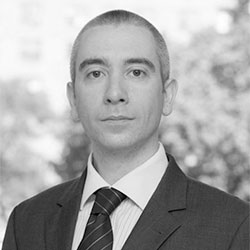
Paolo Gasti, Ph.D.
Assistant Professor, Computer Science
Paolo Gasti’s research focuses on privacy-preserving genomic computation, biometrics, secure multi-party protocols, and network security. He served as a member of the NDN project, which is a National Science Foundation-sponsored endeavor with the goal of designing a new Internet architecture. His work has been featured in articles in the New Scientist and MIT Technological Review. Gasti worked as a research scholar at University of California, Irvine and received a Fulbright scholarship, under which he visited Johns Hopkins University. He received his Ph.D. in Computer Science from University of Genoa, Italy, and his research pertained to the design of cryptographic schemes and network security.